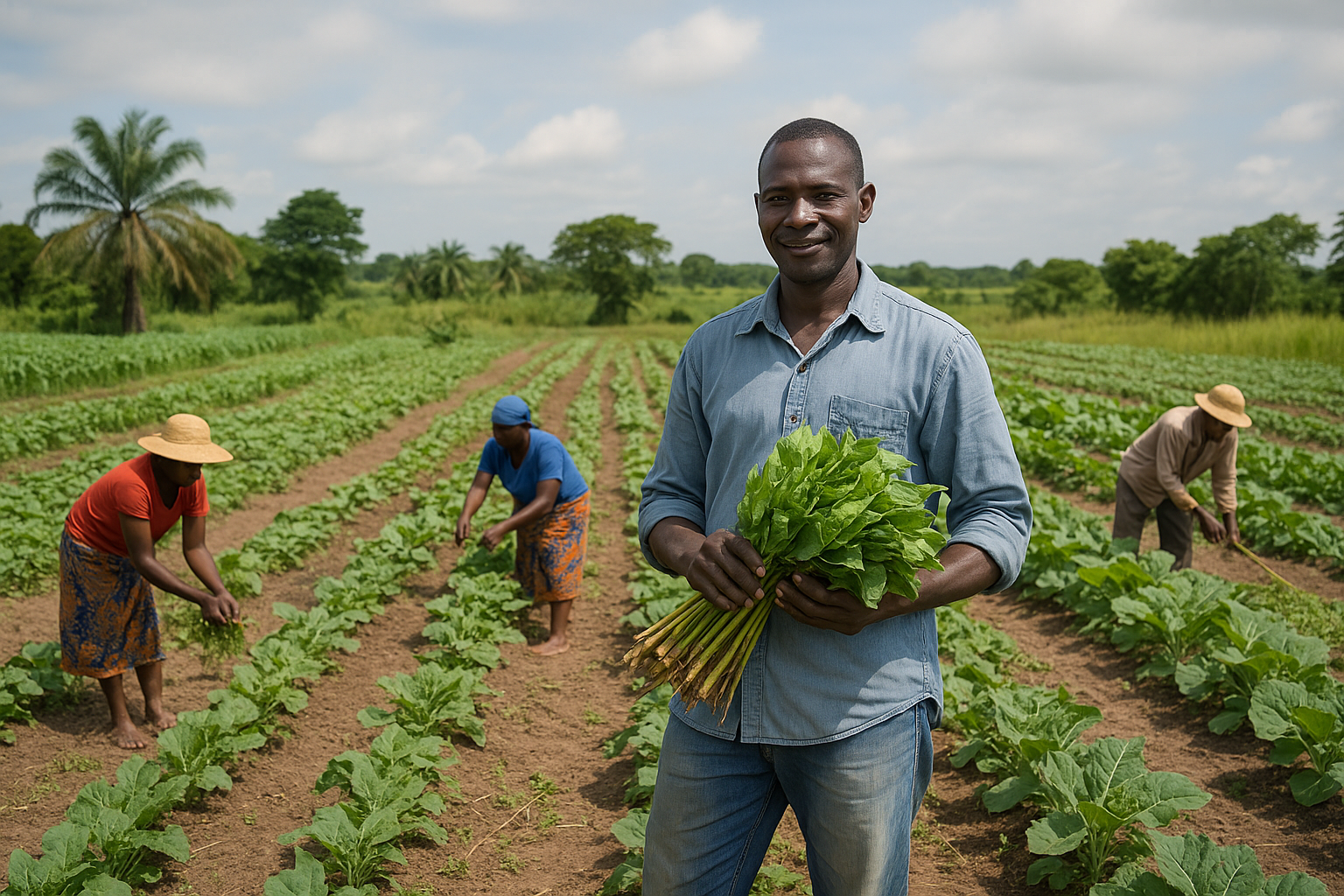UN Calls for Urgent Action on Food Systems to Achieve 2030 SDG Targets
According to the report, 128 countries have developed national food systems transformation pathways aligned with their national development goals and the SDGs.

- Country:
- South Africa
The United Nations has sounded a clarion call for accelerated global action to transform food systems as a critical foundation for achieving the 2030 Sustainable Development Goals (SDGs). This call came with the launch of the Report of the Secretary-General for the Second Food Systems Summit Stocktake (UNFSS+4), unveiled on Monday during the ongoing UNFSS+4 Summit at the United Nations Economic Commission for Africa (UNECA) headquarters in Addis Ababa, Ethiopia.
Launched just five years ahead of the 2030 SDG deadline, the report acknowledges progress but warns of the urgent need to scale up inclusive, rights-based, and resilient food systems reforms globally, particularly to meet SDG 2 – Zero Hunger, which aims to eradicate hunger and achieve food security for all.
Transforming Food Systems: Central to the SDG Agenda
In its opening statement, the United Nations reaffirmed the centrality of food systems in achieving not only SDG 2, but also the broader interconnected goals related to climate action, poverty reduction, health, gender equality, and biodiversity.
“The 2021 UN Food Systems Summit marked a watershed moment in recognising food systems as fundamental to achieving all 17 SDGs,” the report states.
Two years later, UNFSS+2 renewed international commitments. Now, with UNFSS+4, the world enters a decisive midpoint, and the Secretary-General’s report serves as both a progress assessment and a global action blueprint for the next phase of transformation.
Global Momentum: 128 Countries Charting Pathways
According to the report, 128 countries have developed national food systems transformation pathways aligned with their national development goals and the SDGs. A total of 155 nations have appointed National Convenors, acting as focal points for food systems reform.
-
39 countries have revised and upgraded their pathways into more actionable implementation strategies, highlighting increased accountability and government engagement.
-
112 countries voluntarily submitted progress reports in 2025—an increase from 101 in 2023—indicating stronger follow-through and transparency.
“This is evidence of a growing global consensus and ownership of food systems reform,” the report notes.
Key Trends and Breakthroughs
The Secretary-General’s report outlines several transformative trends across governments, civil society, and international organisations:
-
Right to Food as a Legal and Policy Priority: Several countries are now enshrining the right to food in national constitutions, with many integrating it into broader public policy frameworks.
-
Policy Coherence and Integration: Food systems are increasingly embedded in national budgets, climate action plans, biodiversity strategies, and sustainable development policies, enhancing implementation across sectors.
-
Improved Governance Structures: Governments are establishing cross-sectoral oversight bodies that include ministries of health, agriculture, finance, and environment to coordinate transformation efforts effectively.
-
Inclusive Participation: Policies are increasingly centering women, youth, Indigenous Peoples, persons with disabilities, and smallholder farmers, ensuring bottom-up engagement and ownership.
-
Science and Digital Innovation: Countries are investing in AI, precision agriculture, and evidence-based decision-making tools to enhance productivity, predict climate impacts, and monitor food system trends.
-
Sustainable Financing and Investment: There is a growing use of blended finance, climate funds, and innovative financial instruments, although funding gaps persist, particularly for low-income nations.
-
UN System Support: Resident Coordinators and UN Country Teams are intensifying support for governments, facilitating alignment across multiple UN agencies and ensuring technical guidance and capacity-building.
Challenges Ahead: From Declarations to Delivery
Despite the growing momentum, the UNFSS+4 report also points to significant challenges:
-
Many national pathways still lack clear financial plans or implementation frameworks.
-
Rural and marginalized communities remain underrepresented in formal decision-making processes.
-
A disconnect persists between national aspirations and local action, especially in resource-constrained settings.
“We must shift from pledges to execution, from fragmented efforts to coordinated investments,” the report urges.
The report underscores the importance of closing the implementation gap and ensuring that food systems transformation is not derailed by geopolitical instability, climate disasters, or economic shocks.
Upcoming Global Events: Building on UNFSS+4 Momentum
Looking forward, the report identifies several international platforms as key opportunities to reinforce the momentum generated at UNFSS+4:
-
World Summit for Social Development 2025
-
COP30 (UN Climate Change Conference)
-
World Bank and IMF Annual Meetings
-
UNGA 2025 Special Session on Sustainable Food Systems
These platforms will provide space for countries to align food systems transformation with climate change mitigation, clean energy access, education and employment, and social protection frameworks.
A Call to Action: Resilient Food Systems for a Better Future
As the world crosses the halfway mark to 2030, the UN is urging governments, civil society, private sector, and global financial institutions to act urgently and collaboratively. The transformation of global food systems, the report argues, is not only necessary to end hunger but also vital to planetary health, economic recovery, and human dignity.
“We must accelerate efforts to ensure food systems are resilient, equitable, and sustainable. The time for action is now.”
With hunger still affecting more than 730 million people worldwide, and food systems contributing significantly to greenhouse gas emissions and biodiversity loss, the transformation of food systems stands as one of the most urgent development priorities of the decade.









